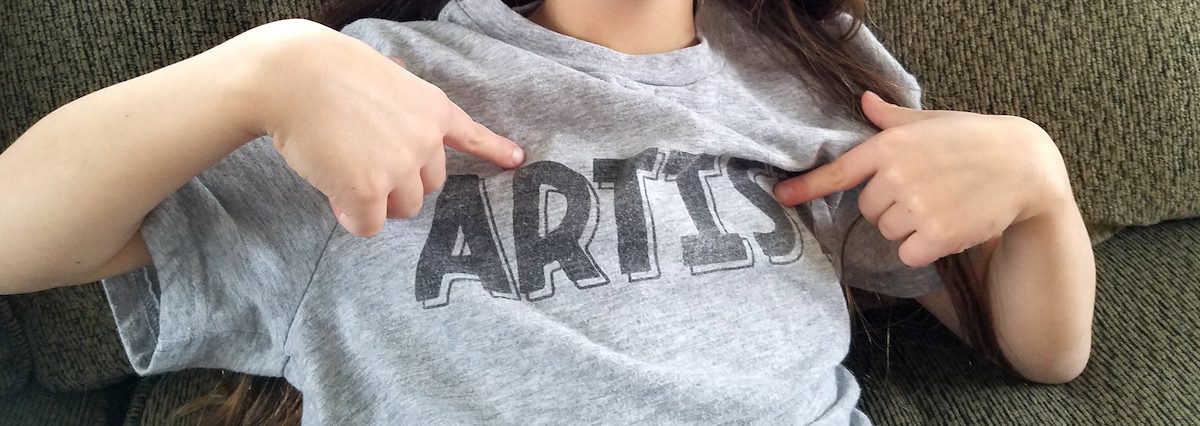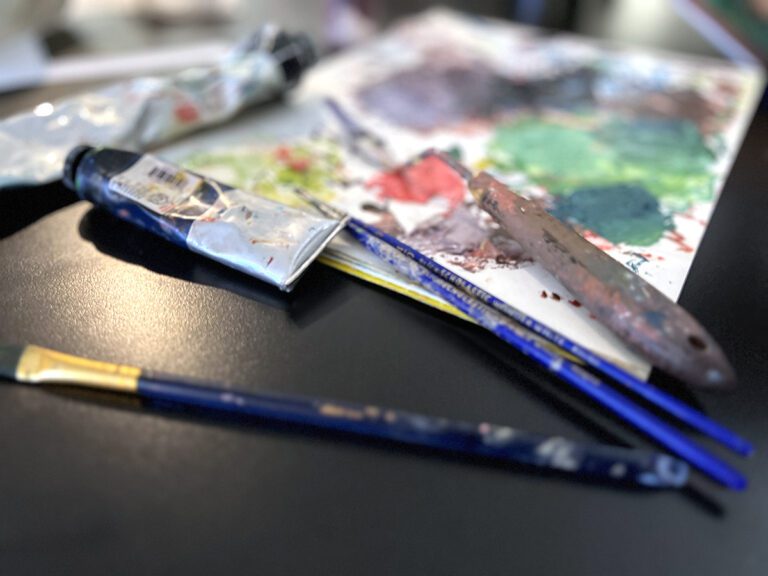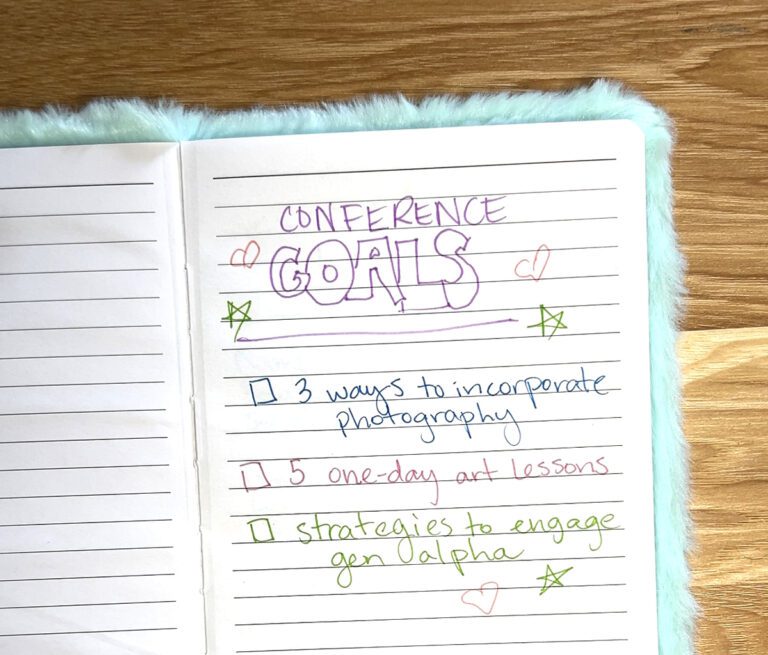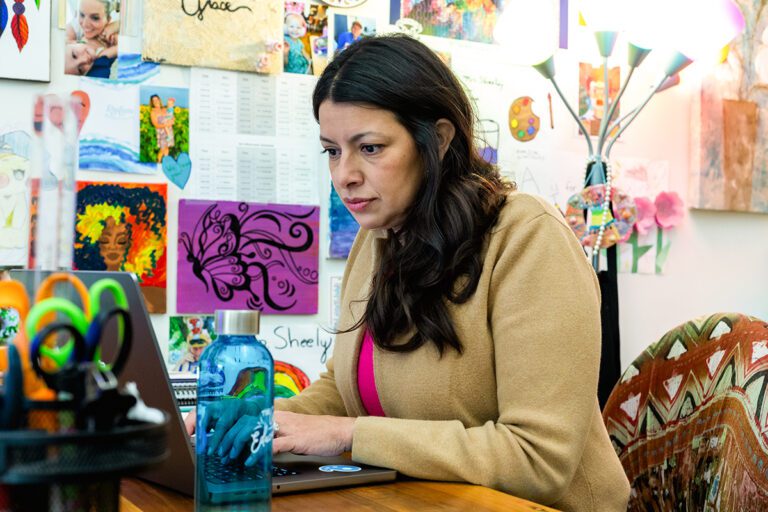A couple of weeks ago, I was picking my youngest daughter up from preschool when I noticed her teacher had recently hung up a new art display. I hustled right over to see what masterpiece my little three-year-old Picasso had created.
Apparently, the students had folded paper in half, put paint inside, and smooshed it to make a symmetrical image. Students later dictated a caption to the teacher and traced what she wrote for them. There were a lot of wonderful bugs, butterflies, and monsters. And then, in the center of it all, I saw my daughter’s painting and a caption. “A motorcycle and some jellyfish and some people eating crab,” I read out loud. I couldn’t help laughing. A teaching aide nearby chuckled and said, “Art teacher’s kid,” with a shrug.
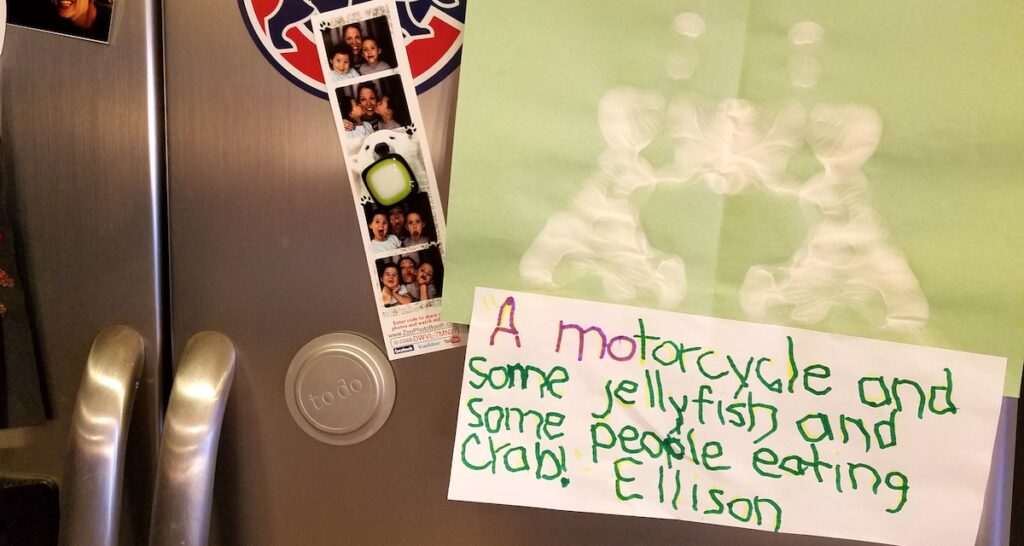
Yes. Exactly. Art teacher’s kid.
Whether we’re aware of it or not, the way we’re wired affects our parenting. Being raised by artist-teachers, our kids are a special breed who have a particular way of interacting with the world. I asked the Art of Education team if anyone had stories similar to mine. Boy, did they. Like our partners and spouses, I’d like to suggest maybe our “littles” have developed some advantageous idiosyncrasies while living with us, too.
Here are 16 Ways Your Art Teaching Might Affect Your Children
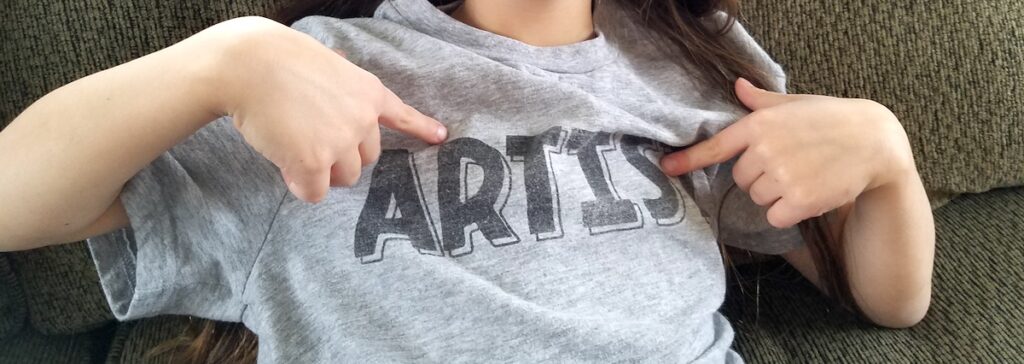
1. When driving through town on trash pick-up day, your child sees something discarded next to the trash cans and yells, “Stop the car! We need that!”
2. Your child is confused by peers who use basic color vocabulary. “What do you mean that’s blue? It’s robin’s egg.”
3. Your child thinks you have a magical ability to fix anything with hot glue, duct tape, or a combination of the two – and it might be true.
4. You child’s first colored pencils were Prismacolor because that’s what you had in the house.
5. Your child is confused by “store bought” Halloween costumes. “You can do that? Why would you do that?”
6. Your child scoffs at the 12-pack of Crayola crayons. Nothing less than the 120-pack for this kid.
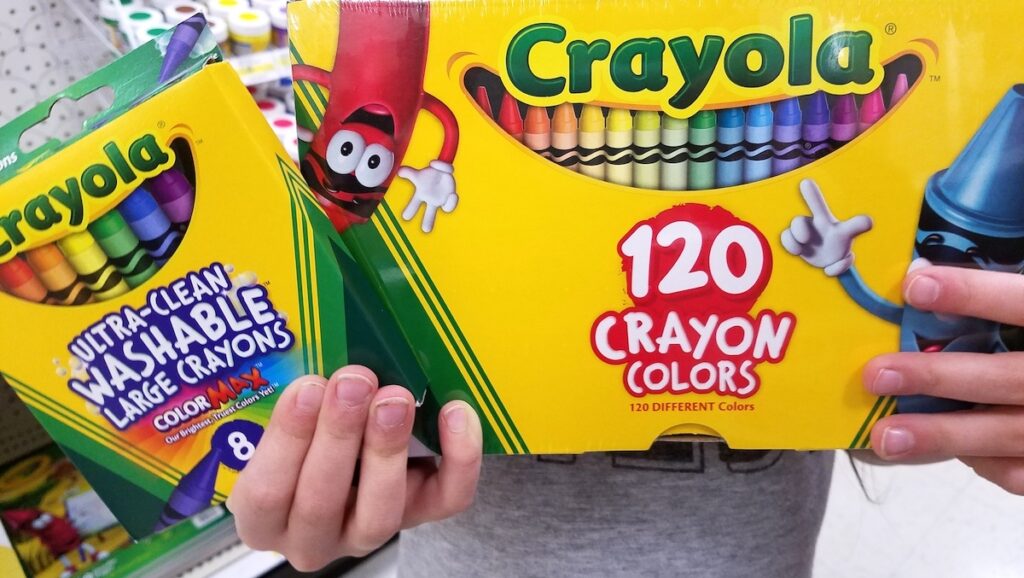
7. Your child hoards cardboard boxes – of all sizes and shapes – until their bedroom is almost a fire hazard.
8. Your child isn’t aware that other parents throw art away because every piece of art they’ve made since birth is in a portfolio in the basement.
9. Your child has a “mini me” collection of art related t-shirts and accessories. What art teacher-parent can resist it when Target does this…?
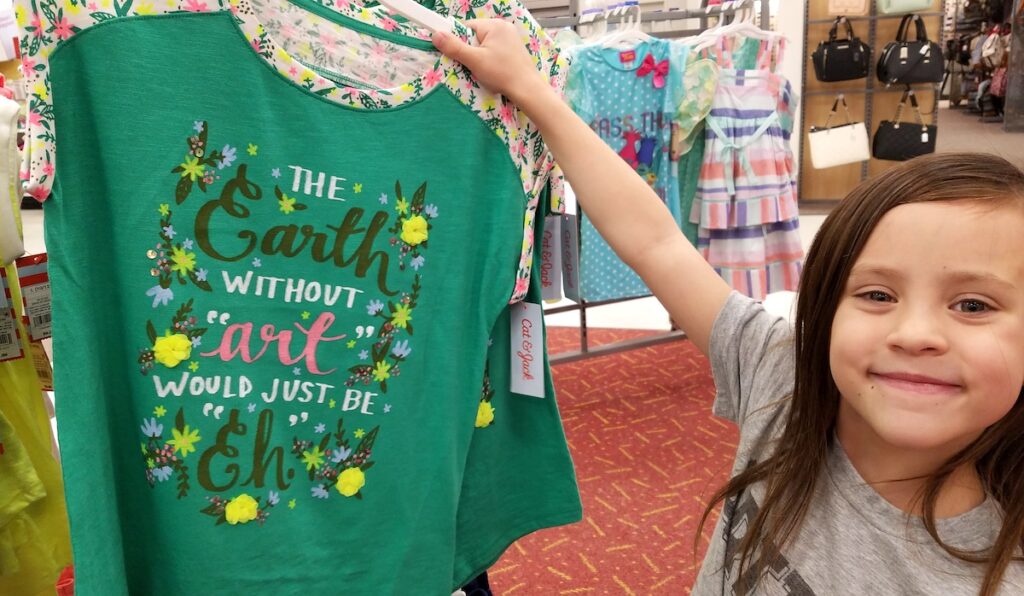
10. You have a three-year-old who recognizes the name, Cassie Stephens.
11. Your kid intuitively knows if they go with you to a school art show, they will be there “until it is dark” because part of attending an art show is taking it down.
12. Your child was introduced to artmaking tools way before other children. What? Don’t all three-year-olds know how to operate a stapler?
13. Much like prehistoric people, your child considers drawing to have mystical powers and a magical effect on life. Spelling tests are covered with doodles of horseshoes and other good luck symbols…how else would you pass?
14. Portions of your home look like an art gallery for gnomes because your children take it upon themselves to hang their own work at their eye level on all available surfaces.
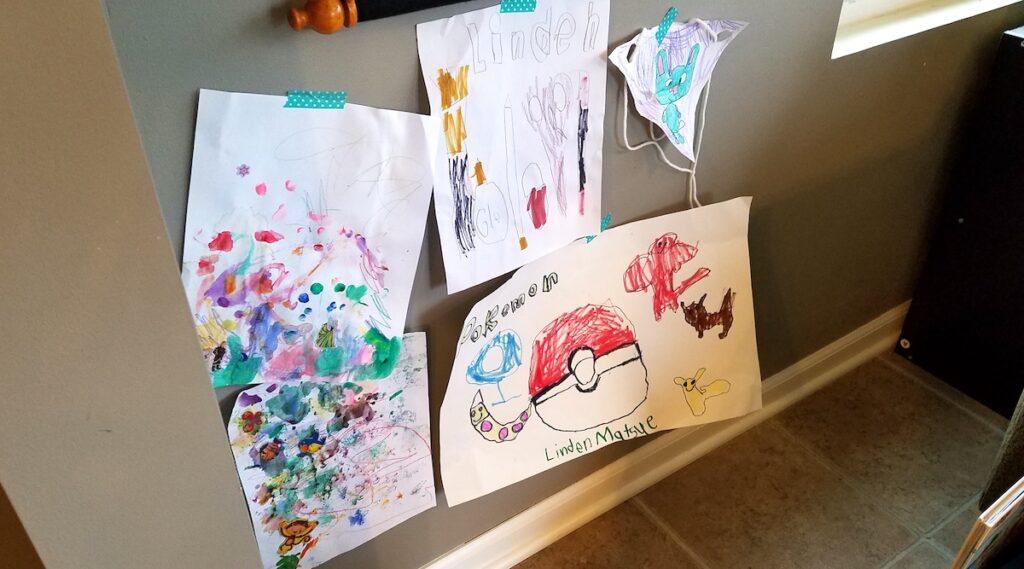
15. Your kid isn’t worried about procrastinating on school projects. After all, your house has enough poster-making supplies to rival any craft store… there is absolutely no hurry.
16. Despite seeing your day to day stress, your kid still wants to be an art teacher when they grow up because they know first-hand it’s the best job in the world. (Except for an astronaut-cheerleader-veterinarian, obviously.)
What funny stories do you have about your own kids?
How does your family benefit from your career as an art teacher?
Magazine articles and podcasts are opinions of professional education contributors and do not necessarily represent the position of the Art of Education University (AOEU) or its academic offerings. Contributors use terms in the way they are most often talked about in the scope of their educational experiences.
